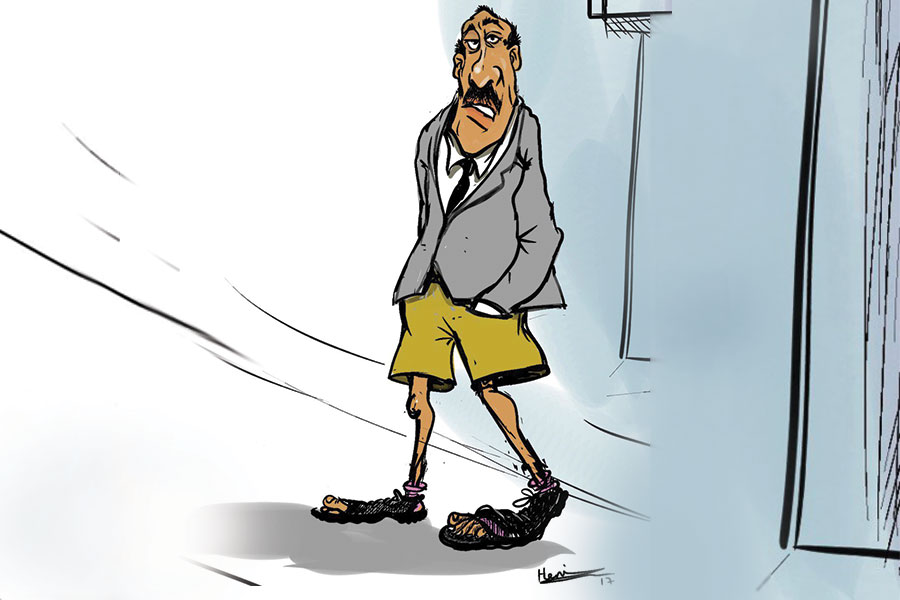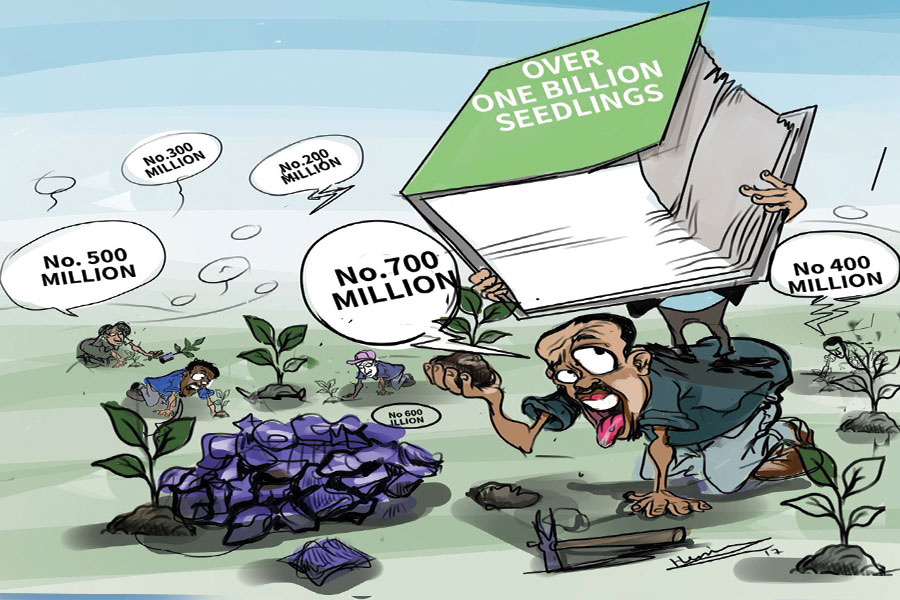
Photo Gallery | 139056 Views | May 06,2019
.
A sudden ban on the importation of semi-knockdown and completely knockdown kits for gasoline-powered vehicles, a move authorities say rapidly accelerates a shift toward electric mobility, has left a burgeoning industry disoriented.
For the domestic assemblers that produced roughly 21,800 vehicles last year, including more than 2,000 electric units, the edict landed without warning. Many had been operating lines dedicated to gasoline kits, supported by bank letters of credit and a predictable import regime.
For Mintesnot Tessera, general manager of Belayab Motors, one of the 14 assemblers active in the market, the authorities "never provided" a firm timeline, although he had seen a sign about a potential ban.
Effective May 15, 2025, the measure allows only electric, hybrid or ambulance kits to enter the country. According to officials of the Ministry of Industry, the policy move forms part of a broader, 10-year strategy to phase out gasoline cars, develop local technical skills, curb mounting fuel import bills and tackle worsening pollution in Addis Abeba and other cities.
However, the abrupt cutoff has thrown manufacturers and buyers into uncertainty, an outcome policymakers are now scrambling to manage.
“A clear transition period would have allowed the industry to adjust,” Mintesnot told Fortune.
Until May’s announcement, assemblers like Multiverse Enterprise Plc had mapped out plans for new diesel and electric taxi models. Multiverse, which had partnered with the Defence Engineering Industry Corporation (DEIC) to assemble 5,000 vehicles, relied on a down payment of roughly 1.5 million Br for a five million Birr diesel package. Under the new rules, electric taxis now carry a sticker price of 8.5 million Br with a 2.5 million Birr down payment, an increase many drivers cannot absorb.
“For almost all drivers, this amount is financially out of reach,” said Nuredin Ditamo, chairperson of the Blen Taxi Association. "Desperate operators had hoped for state support or trade-in programs to cushion the blow."
In addition to the financial shock, infrastructure shortcomings pose another obstacle to rapid electrification. Charging stations remain scarce outside of Addis Abeba, and most current installations offer slow charging. Field vehicles used in remote regions, typically double-cabin pickups, often lack electric versions with the necessary range or payload capacity.
Semereab Serekeberhan, deputy board director of the Ethiopian Automotive Industries Association, applauded the green push but urged policymakers to allow exemptions for specialised vehicles until viable electric alternatives are available.
“We're not informed ahead of time,” he said. “Without exemptions, critical services could be disrupted.”
The policy has also strained financing channels. The Commercial Bank of Ethiopia (CBE), the largest state-owned lender, has declined to open letters of credit for gasoline-based kits since the ban on such transactions was implemented.
According to Seid Negash, who heads Multiverse’s import operations, banks are concerned about the risk of importing now-prohibited items. The abrupt tax and customs changes have also compounded liquidity pressures. With no formal grace period for existing inventory, assemblers have faced the choice between writing off assets or scrambling to retool facilities for a product line in which the domestic market is still nascent.
On June 9, the Ethiopian Customs Commission issued instructions to its regional offices, mandating stricter inspection protocols and designating that any attempt to import kits not allowed will incur penalties equal to twice the vehicle’s value, along with forfeiture. According to Yonas Teklewoled, head of the Commission’s operations division, detailed declarations and rigorous oversight are essential to enforce the ban.
“We remain aligned with the policy’s goals,” he told Fortune. “But, explicit directives are important to ensure smooth implementation.”
Within the Ministry of Industry, officials are racing to fine-tune technical guidelines and policy frameworks. Tilahun Abay, strategic affairs executive, acknowledged the need for a “reasonable adjustment period” to train workers and allow existing gasoline kits, many of which benefited from prior government support, to clear customs.
The Ministry plans to convene affected parties for a series of meetings to address issues and roll out financial and administrative incentives for local electric vehicle (EV) assemblers.
Still, analysts warn that rolling out ambitious green policies without commensurate infrastructure and regulatory certainty can backfire.
Bereket Tesfaye, an EV consultant and general manager of Circular Nexus Consulting, praised the government’s environmental objectives but cautioned that the country’s grid remains fragile and that trained technicians are in short supply. He urged the authorities to study the staged approach used in countries like Norway, where incentives for early adopters and careful sequencing of charging-network expansion accompanied gradual phase-outs of gasoline vehicles.
“Policy must be anchored in real-world constraints,” he said. “Without meticulous planning, we risk creating new problems while failing to solve existing ones.”
PUBLISHED ON
[ VOL
, NO
]

Photo Gallery | 139056 Views | May 06,2019

My Opinion | 134013 Views | Aug 14,2021

My Opinion | 130569 Views | Aug 21,2021

Photo Gallery | 129323 Views | Apr 26,2019

Aug 23 , 2025
Banks have a new obsession. After decades chasing deposits and, more recently, digita...

Aug 16 , 2025
A decade ago, a case in the United States (US) jolted Wall Street. An ambulance opera...

Aug 9 , 2025
In the 14th Century, the Egyptian scholar Ibn Khaldun drew a neat curve in the sand....

Aug 2 , 2025
At daybreak on Thursday last week, July 31, 2025, hundreds of thousands of Ethiop...